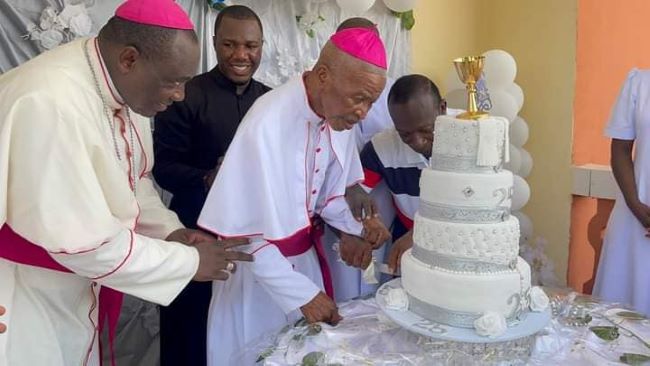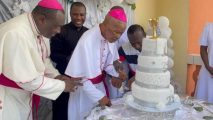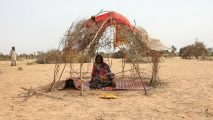Categories
Archives
- April 2024
- March 2024
- February 2024
- January 2024
- December 2023
- November 2023
- October 2023
- September 2023
- August 2023
- July 2023
- June 2023
- May 2023
- April 2023
- March 2023
- February 2023
- January 2023
- December 2022
- November 2022
- October 2022
- September 2022
- August 2022
- July 2022
- June 2022
- May 2022
- April 2022
- March 2022
- February 2022
- January 2022
- December 2021
- November 2021
- October 2021
- September 2021
- August 2021
- July 2021
- June 2021
- May 2021
- April 2021
- March 2021
- February 2021
- January 2021
- December 2020
- November 2020
- October 2020
- September 2020
- August 2020
- July 2020
- June 2020
- May 2020
- April 2020
- March 2020
- February 2020
- January 2020
- December 2019
- November 2019
- October 2019
- September 2019
- August 2019
- July 2019
- June 2019
- May 2019
- April 2019
- March 2019
- February 2019
- January 2019
- December 2018
- November 2018
- October 2018
- September 2018
- August 2018
- July 2018
- June 2018
- May 2018
- April 2018
- March 2018
- February 2018
- January 2018
- December 2017
- November 2017
- October 2017
- September 2017
- August 2017
- July 2017
- June 2017
- May 2017
- April 2017
- March 2017
- February 2017
- January 2017
- December 2016
- November 2016
- October 2016
- September 2016
- August 2016
- July 2016
- June 2016
Featured
 Bishop Francis T. Lysinge @ 25!
Bishop Francis T. Lysinge @ 25!  Understanding the Biya Francophone regime’s support for the Israeli genocide in Gaza
Understanding the Biya Francophone regime’s support for the Israeli genocide in Gaza  Poverty under Biya: Cameroonians embrace Chinese language for brighter futures
Poverty under Biya: Cameroonians embrace Chinese language for brighter futures  Cameroon is broken: Who can fix it?
Cameroon is broken: Who can fix it?  Ethiopia: U.S Senator Cardin Statement on the Killing of Bate Urgessa
Ethiopia: U.S Senator Cardin Statement on the Killing of Bate Urgessa
Most Commented Posts
 4 Anglophone detainees killed in Yaounde
4 Anglophone detainees killed in Yaounde
19 comments Chantal Biya says she will return to Cameroon if General Ivo Yenwo, Martin Belinga Eboutou and Ferdinand Ngoh Ngoh are sacked
Chantal Biya says she will return to Cameroon if General Ivo Yenwo, Martin Belinga Eboutou and Ferdinand Ngoh Ngoh are sacked
13 comments Anglophone Nationalism: Barrister Eyambe says “hidden plans are at work”
Anglophone Nationalism: Barrister Eyambe says “hidden plans are at work”
12 comments The Anglophone Problem – When Facts don’t Lie
The Anglophone Problem – When Facts don’t Lie
12 comments Largest wave of arrest by BIR in Bamenda
Largest wave of arrest by BIR in Bamenda
10 comments
Latest Tweets
Featured
-

King Charles III to resume public duties next week following cancer treatment
-

Indomitable Lions Crisis: FIFA refuses to acknowledge Marc Brys
-

Bishop Francis T. Lysinge @ 25!
-

10 Million Cameroonians lived on less than $1.80 per day
-

Football: Xavi to remain as Barcelona coach
-

Biya regime delays bond sale amid regional market strain
-

Historic agreement between Nigeria and Cameroon to tackle wildlife crime
© Cameroon Concord News 2024
26, December 2021
Africa Cup of Nations: Mascot wears a bullet proof vest, policeman lynched, fighting escalates 0
A bomb thrown into a classroom, a taxi driver blown up, a policeman lynched… and even the mascot wears a BULLET PROOF VEST! As fighting escalates in Cameroon, Premier League stars are warned THEY could be targets during AFCON
Human Rights bodies have warned top players could be targeted at the AFCON
The little-known conflict has waged for four years but is now escalating quickly
One of the tournament’s stadiums is located in the middle of the conflict zone
Government and separatists are battling for power in the English speaking west
Cameroon military struggle to contain separatists who have warned foreign stars not to come to the Central African country, or risk harm
Activists highlight appalling suffering which has caused 700,00 people to flee
Escalating violence in Cameroon will threaten the safety of Premier League stars when the Africa Cup of Nations begins next month, human rights activists have warned.
The African showcase includes 24 teams from across the continent and is set to open on January 9, but there are now calls for it to be postponed because of the conflict.
The competition is likely to feature more than 40 players from the English top flight, including Thomas Partey, Nicolas Pepe and Mohamed Elneny, from Arsenal; Trezeguet from Aston Villa; Chelsea’s Edouard Mendy; Crystal Palace’s Wilfried Zaha; Manchester City’s Riyad Mahrez and the Liverpool trio of Mohamed Salah, Sadio Mane, Naby Keita.
Despite the growing fear that teams and the tournament could be targeted in an increasingly bitter and violent conflict, there is no sign that the event will be postponed or even the plans changed to reduce the risk.
Most of the discussion surrounding the tournament has focused on the release date for Europe’s elite players and the risk of contracting Covid.
This week, the Confederation of African Football (CAF) President Patrice Motsepe met with Cameroon President Paul Biya and insisted the showpiece would go ahead as planned.
However, human rights organisations have told Sportsmail they believe there is a real risk for players and staff and the tournament should be postponed, or at the very least, matches moved from the South West region, which is considered the most dangerous.
Violence first flared four years ago between separatist groups in the English speaking west of the Central African country, known as the ‘anglophone zone’, and the Government of the largely French speaking, francophone, Cameroon.
The conflict has intensified dramatically this year and human rights activists say there have been 80 bombs detonated in the anglophone region since January, and there have been many deaths, including policemen, soldiers, civilians and a five-year-old girl.
A large area of south west Cameroon is now under a night-time curfew.
Even the tournament’s mascot, Mola the lion, wore a bullet-proof vest over his Cameroon strip as he toured the conflicted region last week.
Mola, which is a convivial name, meaning friend, elder or uncle, was also escorted by a detachment of heavily armed troops.
‘There are now mounting calls to delay the AFCON competition until the warring parties call for a ceasefire and enter peace negotiations,’ Rebecca Tinsley, a human rights researcher and a member of the Global Campaign for Peace and Justice in Cameroon told Sportsmail.
‘We are saying postpone the tournament because all of this threat could be removed if the government just said, “yes, we will have peace talks”.’
There appears to be little chance of that with the Government determined to show no weakness in the face of the threat from its South West and North West regions.
One of the six tournament stadiums, Limbe, is the only one located in the contested ‘anglophone zone’, although two more at Bafoussam and Douala are hard on its borders and it is feared they could also be targeted.
‘There is a real risk of… attacks in all AFCON venues, especially in Limbe,’ observed Tinsley.
With a capacity of 20,000, the Limbe Stadium is set to host six group matches.
Among the six teams due to play in the group stage in Limbe, 190 miles from the capital Yaounde, are Mali, for whom Brighton’s Yves Bissouma and Southampton’s Moussa Djenepo, are expected to play.
However, the town is also slated for two round of 16 games, which could see any four of the 24 participating countries forced to play in the conflict hotspot.
‘English clubs should be really cautious about sending their players into a very unstable situation. There are real dangers,’ Tinsley added.
‘You only have to look at the record of the armed militias and separatist groups. They have exploded more 80 improvised explosive devices and they are becoming increasingly sophisticated in their tactics.
‘This should alarm any football club thinking of sending players into the region.’
The European Club Association has already written to the CAF, but predominantly to highlight the risks of Covid and threatening to block the release of players.
However, those with knowledge of the country suggest conflict and violence is a far greater concern.
Threats have appeared widely online warning the Cameroon authorities not to play matches in the west of the country, an area the separatists call, Ambazonia.
And separatists warn players not to come.
One commentator, Mark Bareta, an author and activist for the cause, based in Belgium, who describes himself in his Twitter profile as ‘standing for the people of the Former British Southern Cameroons (Ambazonia)’ posts warnings on Twitter and celebrates the defeat of Government soldiers.
‘Cameroun is at war with Ambazonia,’ he wrote in one post. ‘Players taking part do so at their own risks.’
The conflict in the Central African country of Cameroon is largely hidden from international audiences.
In global terms, it is not a geopolitically significant dispute, but for the millions of people whose lives are blighted, ruined, or ended by the violence, it is defining.
Now international football has run into the fray and suddenly it takes on more significance in the wider world.
The problem crystalised in 2016. English-speaking areas of Cameroon (anglophone) felt they were marginalised by the French-speaking (francophone) majority.
The anglophone regions of the South West and North West, which the separatists call Ambazonia, account for about one fifth of the 20 million population.
They felt the Cameroon government under President Paul Biya, 88, who has ruled since 1982, was trying destroy their traditional education and legal system, which was based on English traditions and common law.
In 2016, lawyers and teachers protested peacefully but according to human rights organisations a heavy-handed government crushed their dissent.
The argument became radicalised. Now, there are multiple armed groups who claim to represent the western reaches of Cameroon. For four years conflict has intensified with militia targeting soldiers and policemen, but also civilians who do not demonstrably back them.
One move has been to demand schools remain closed to create leverage on the francophone government. Education is at the heart of the conflict.
As a result, most schools have been closed for years and 700,000 children have been deprived of an education, while Human Rights Watch has reported how student and teachers have been horribly abused, mutilated and killed.
But according to activists, the government has also committed atrocities and abuses. It has sent thousands of soldiers west, but they seem unable to stop the separatists and have not won the confidence of the locals.
The failure has resulted in 700,000 people fleeing from this corner of Africa, which is about to stage the continent’s Cup of Nations.
While human rights groups disagree on how best to manage Afcon, they are clear that the world needs to wake up to a cruel and devastating conflict, which they say, may also threaten the safety of some of Europe’s most famous footballers.
In another post on his Twitter account, which has 19,000 followers, Bareta wrote: ‘All visitors are called upon not to risk their lives to travel to Ambazonia.’
CAF PRESIDENT WILL ATTEND WITH FAMILY
The President of the Confederation of African Football (CAF), Patrice Motsepe, has insisted the Africa Cup of Nations will go ahead as planned next month after he met with the President of Cameroon, Paul Biya, this week.
Motsepe said he would be attending the opening game and final with his wife and children, after European clubs expressed concern about the tournament going ahead during a pandemic.
‘I will be in Cameroon on January 7 with my wife and kids to witness this incredible competition,’ he said.
‘You can see that there’s a huge commitment and a focus to make sure that there’s good progress.
‘We are going to host with the people of Cameroon an exceptional tournament. It will be the most successful Afcon. We are ready to show the world the best of African football and African hospitality.
‘This tournament is important for the people of Africa and I’m so proud and so excited with the work done.’
Motsepe gave reassurances about Covid protocols but the threat from the ongoing conflict in Cameroon has hardly been discussed.
‘Nobody is writing about this and it is tragic because it is a huge mess,’ Rebecca Tinsley, a human rights researcher and a member of the Global Campaign for Peace and Justice in Cameroon told Sportsmail .
Human rights activists insist the threats are not just sabre rattling, they are real and the separatists will do whatever they can to breach security at stadiums, hotels and restaurants to abduct a player.
‘They are incredibly serious,’ one human rights activist, who did not want to be named, told Sportsmail. ‘They see this as their one opportunity when the world’s media will be in their neighbourhood.
‘They use terror and intimidation. Kidnapping and IEDs. And they are serious about disrupting the tournament, because they know it would bring attention.
‘All of this would be manageable if government forces were competent, but they are not.’
In January, the Limbe Stadium was targeted during the African Nations Championship, a smaller competition that features players from Africa’s domestic leagues. Vehicles were blown up in the vicinity of the arena.
One of the epi-centres of the conflict is the city of Buea, less than 13 miles from Limbe.
Improvised explosive devices have been increasingly used during the last year, particularly in the last two months, as the violence has stepped up.
A bomb was thrown into a lecture theatre at the University of Buea injuring eleven students, another killed a taxi driver, while a child, Caro Louise Ndialle, 5, was shot dead by a policeman in October, who was then lynched by a mob in the riot that followed.
As tensions spiralled, a civilian was shot dead by police and separatists, who often turn on their own people if they consider them not to be loyal to the cause, separatists have reportedly hijacked public buses, beating and torturing the passengers.
Further west, in the town of Ekondo Tiki, gunmen attacked a school in November killing three students and a teacher.
A little more than 50 miles from Buea, just outside the anglophone zone, is the French-speaking town of Douala, where the 50,000 capacity Japoma Stadium will host Ivory Coast in the competition’s groups stages.
The Elephants announced their squad on Thursday and it includes Manchester United’s Eric Bailly, Burnley’s Maxwel Cornet, Crystal Palace’s Wilfried Zaha, Wolves’ Willy Boly and Arsenal’s Nicolas Pepe.
The North West region of Cameroon, which borders the South West, is also racked by violence, with Amnesty International documenting horrific abuses by separatists and the army, including killings, beheadings and the destruction of home and property.
WHY DO EUROPEAN CLUBS OBJECT?
Former Barcelona, Everton and Chelsea striker Samuel Eto’o has questioned why European clubs and media are raising concerns over the Afcon.
The four-time African Player of the Year, who was elected president of Cameroon’s FA earlier this month, criticised reports that the tournament may not take place.
He was speaking after the European Club Association raised concern about the risk to players from Covid-19 at the African showpiece.
‘If the Euros took place in the middle of the pandemic, with full stadiums in several cities in Europe and there was no problem, why wouldn’t AFCON be played in Cameroon?’ the former striker told French station Canal+.
‘Or are you trying to say that like we’ve always been treated, we Africans aren’t worth anything so we have to put up with it?
‘I don’t see why AFCON wouldn’t take place. The Cameroon FA that I represent will defend hosting this competition to the end.’
Eto’o also said in a statement: ‘The Cameron Football Federation assures players and supporters of the 24 qualifying countries and those amateur footballers who wish to visit Cameroon, that all sanitary and safety measures have been taking by the government to guarantee the competition goes ahead successfully.’
European clubs have also questioned release dates for players, hoping to retain their services for longer amid a hectic season.
It was here in the North West town of Bamenda that Mola the Lion was photographed in his bullet proof vest.
Just across another regional border and only 50 miles down the road, is a third host stadium at Bafoussam. The Kouekong Stadium, which holds 20,000 spectators, will host Senegal, whose squad boasts further array of European-based stars.
Among them are Liverpool’s Sadio Mane, Chelsea’s Edouard Mendy, Crystal Palace’s Cheikhou Kouyaté, Leicester City’s Nampalys Mendy and Watford’s Ismaila Sarr.
Human Rights Watch has documented many of the abuses in western Cameroon, which have led to the exodus of 700,000 people, who fled to neighbouring countries.
The group has serious concerns over safety at Afcon, particularly in relation to Limbe, and it believes no games should be played there. Human Rights Watch would like to see those matches relocated to a safer location.
‘[We] documented incidents of violence in the South West region and the state of Cameroon and CAF have a responsibility for ensuring the safety of the tournament, stadiums, players and officials,’ said Ilaria Allegrozzi, a senior researcher for Human Rights Watch, who specialises in Cameroon.
‘If the determination is made that any of the locations in the South West state are a substantial risk those games can be moved to another venue, which is safer,’ she told Sportsmail.
However, despite its concerns, Human Rights Watch does not support further postponement of the tournament. In 2019, Cameroon was not ready to host and the Afcon was relocated to Egypt. It returned to Cameroon in 2021, but it has been delayed from the summer because of the coronavirus pandemic.
‘The tournament is a celebration of African football,’ said Allegrozzi. ‘The [European] clubs and others should take this opportunity to learn more about the country and the situation in the anglophone regions.
‘Let’s talk about Cameroon but in a different way, not by excluding Cameroon from the Afcon, not delaying or cancelling, but reflecting what is going on in the country, the suffering, the displacement, the humanitarian crisis.’
Source: Daily Mail